June 18, 2025 | 19:00 GMT +7
June 18, 2025 | 19:00 GMT +7
Hotline: 0913.378.918
June 18, 2025 | 19:00 GMT +7
Hotline: 0913.378.918
Editorial boards’ words: The Ho Chi Minh National Academy of Politics hosted a virtual conference titled "Dialogue for Local Development 2021," which drew representatives from 59 bridge sites across the nation.
The discussion was convened under the auspices of the United States Agency for International Development and the Vietnam Initiatives Institute. The subject was "Implementing development objectives in the new normal." The conference was led by Nguyen Xuan Thang, Politburo member and Director of the Ho Chi Minh National Academy of Politics.
Le Minh Hoan, Minister of Agriculture and Rural Promotion delivered an unscripted address at the Conference on the development of sustainable agriculture. Vietnam Agriculture Newspaper published an article in which he expressed his views. The editing office determines the titles of articles.
Vietnam agriculture is committed to achieving development objectives via the following principles: ecological agriculture, modern rural regions, and intelligent farmers. The term "ecological" is comprised of the word "green."
In the first seminar on digital transformation, we discussed the Covid-19 epidemic. There is evidence that, after the appearance of Covid-19, the illness caused by the SARS-CoV-2 virus spawned a slew of additional disorders. That may be the cause of nature's ecological imbalance.
Although I am not in the health business, it is instructive to observe that there is a connection between green development and Covid-19 in some certain areas.
When the Covid-19 pandemic struck, we instituted social segregation in certain areas. Psychological distress arises as a result of illness, yet we live in a green and clean atmosphere.
Thus, Covid-19 serves as a cause, a consequence, and a recommendation to us.
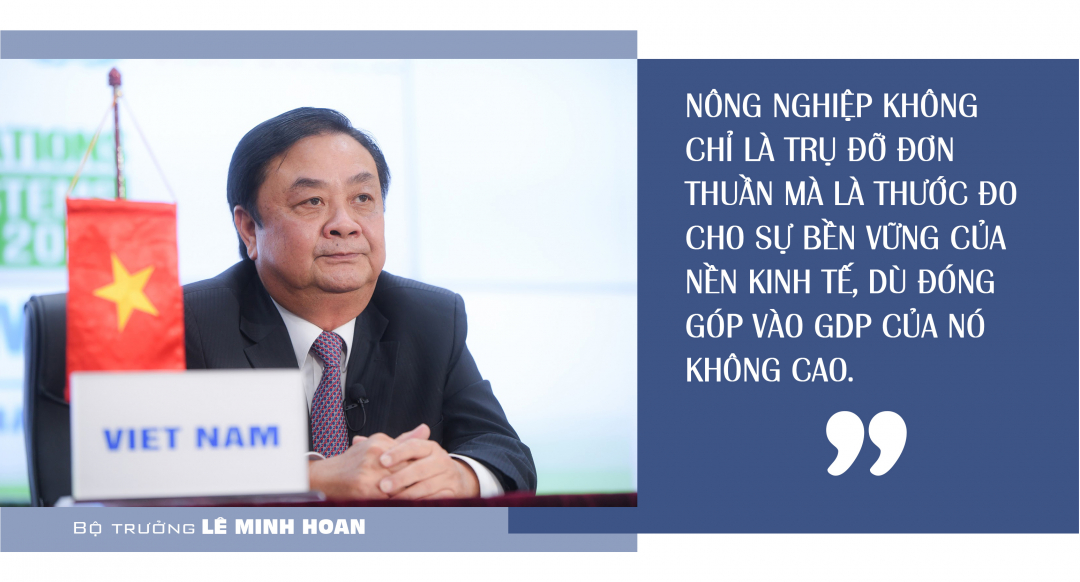
"Agriculture is not just a cornerstone of the economy; it is a barometer of its viability, although its little contribution to GDP."
We are living in a time of complex multidimensional volatility, which experts refer to as VUCA: Volatility, Uncertainty, Complexity, and Ambiguity, as shown by the Covid-19 era.
However, even amid adversity, there is opportunity. There is potential in every obstacle. And, similarly, we are thinking the same way about the agriculture sector.
Green agriculture is a component of a green economy, as former Prime Minister Nguyen Xuan Phuc said plainly in his message: For a green Vietnam. Following the message, I'd want to offer information on Vietnam's future agricultural and rural development strategy, which will include the "green" concept.
As I have outlined, Vietnamese agriculture is confronted by three enormous variables: climate change, market volatility, and shifting consumer patterns, particularly green consumption.
Consumers now not only purchase agricultural products or products with a monetary worth, but also intangible values such as origins from green agriculture, responsible agriculture, or sustainable agriculture.
After many accomplishments, agriculture in Vietnam has developed into the backbone of the economy throughout times of hardship.
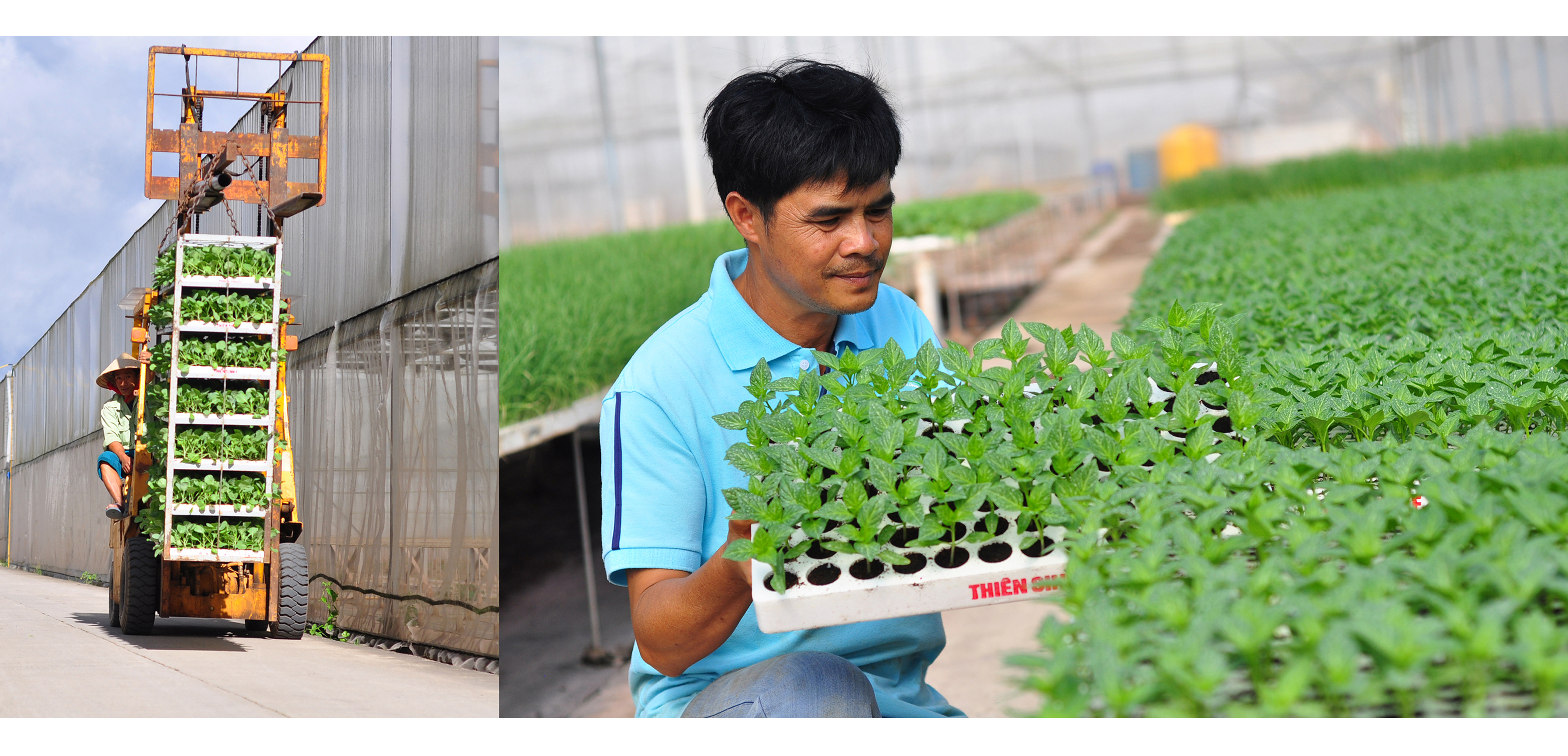
Currently, international institutions such as the World Bank estimate that Vietnam's agricultural output is high, but at a high cost.
Costly inputs include fertilizers, insecticides, and other chemicals.
This is shown in research conducted by a scientist based in Dong Thap. This research demonstrates that excessive pesticide usage not only increases farmer expenses, but also contributes to greenhouse gas emissions, since these compounds do not degrade quickly, but slowly dissolve, leaving just a trace of usefulness. 50% is released into the atmosphere and the remainder is absorbed by terrestrial ecosystems.
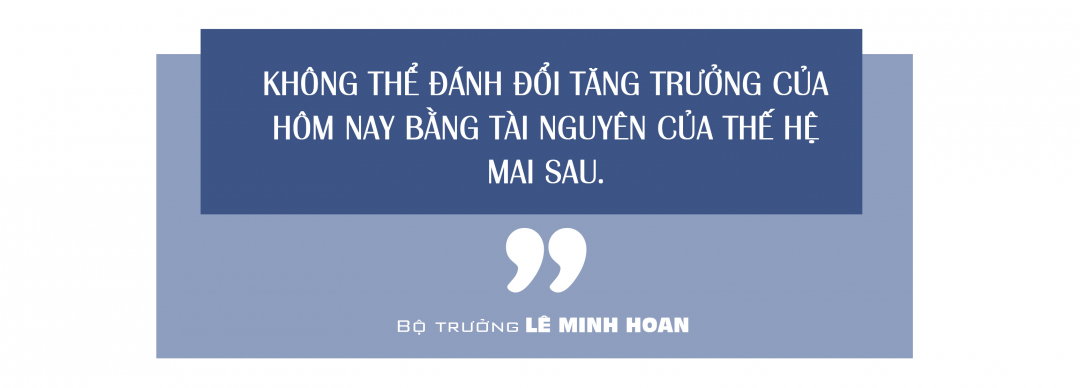
"Today's growth cannot be traded for the future generation's resources."
This demonstrates that this kind of agriculture is unsustainable. Agriculture that is free of all expenses is trade-off agriculture.
This cost does not only include the input costs of farmers and companies; it also includes social and environmental costs, the global expenses that Vietnam pays to the globe to create a more green world.
This is the narrative that Vietnam's agriculture will tell in the future: not just growing production, but also completely accounting for expenses, including input costs and "hidden costs," such as environmental costs, as I previously said the cost of biodiversity loss and imbalanced natural ecosystems.
I'd want to offer more information on agriculture's development via a green growth mentality. Previously, when we sought to decrease agricultural inputs, we discovered that improving and restoring the environment required considerable work, including communication, farmer training, and money.
However, why don't we believe the reverse, that we should invest in growth? Because that is a prerequisite for sustainable growth. Green tourism is one of the green consumerism trends.
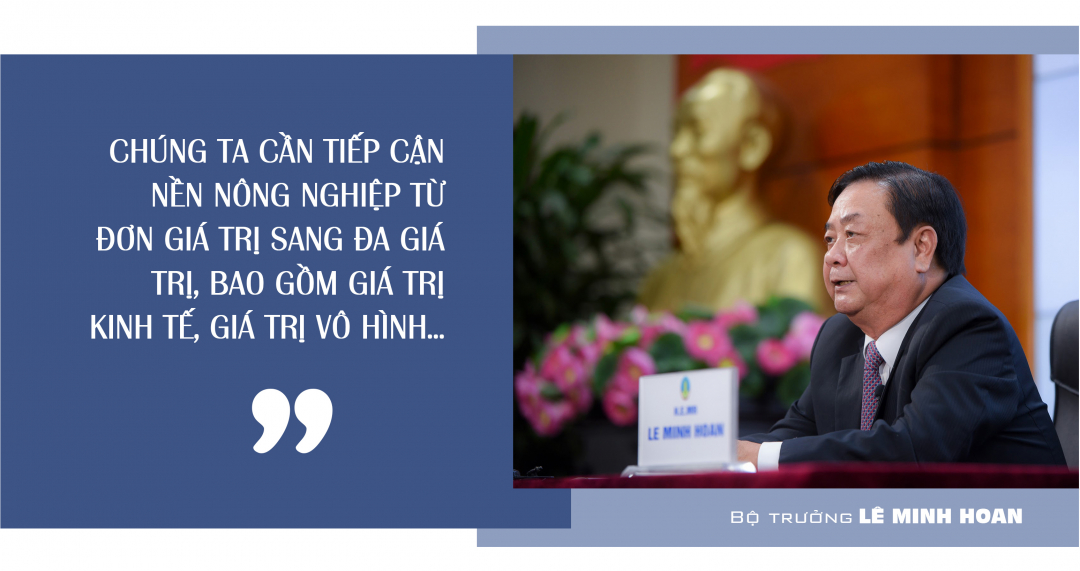
"Agriculture must be rethought from a single-value perspective to a multivalued one: economic value, intangible value..."
We do not have to spend money on environmental treatment; rather, we invest in the environment to produce high-quality agricultural goods, the agricultural industry's brand, and the brand of a region or nation.
That brand will infuse agricultural goods with added value. If we consider it in that light, something is neither costly nor luxurious. If local governments can pivot and rethink their approaches, all 63 provinces and cities will have access to a green economy and green agriculture.
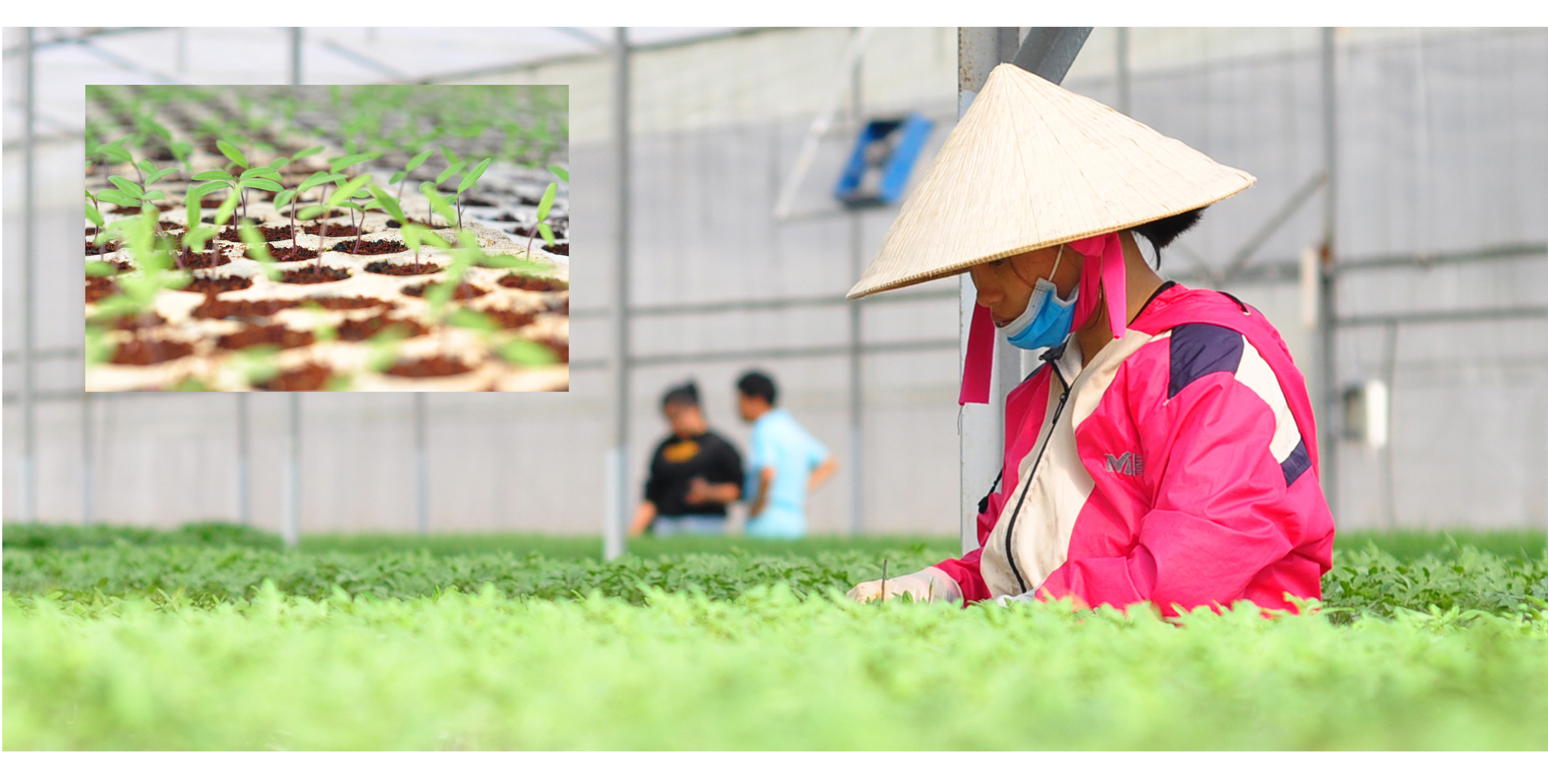
We sought output-based growth; now we must adapt and develop sustainably. I believe that if we think and act collectively at the same level in all 63 provinces and cities, we can establish the agricultural brand, contribute to the national brand, and contribute to the development of national value. upcoming therapy. And the future here is determined by us, not by outside forces.
And we must alter our model, way of thinking, development space, and depth of development. It is not only embodied locally in labor productivity, production, and value, but we also need to shift our perspective on agriculture from single to multi-valued, which includes economic value, material value, added value, intangibles, culture, local history, community power, and technology. This integration will result in a significant increase in value.
Today, tourism consists only of the integration of homes on a beach or island with exceptional tourist advantages. If we revert to green tourism, it would encourage urban residents to return to rural areas and international visitors to come and interact with Vietnamese farmers. That is, agriculture is integrated into our tourist and agricultural value. And we recognize the value of a green environment in attracting visitors to rural areas.
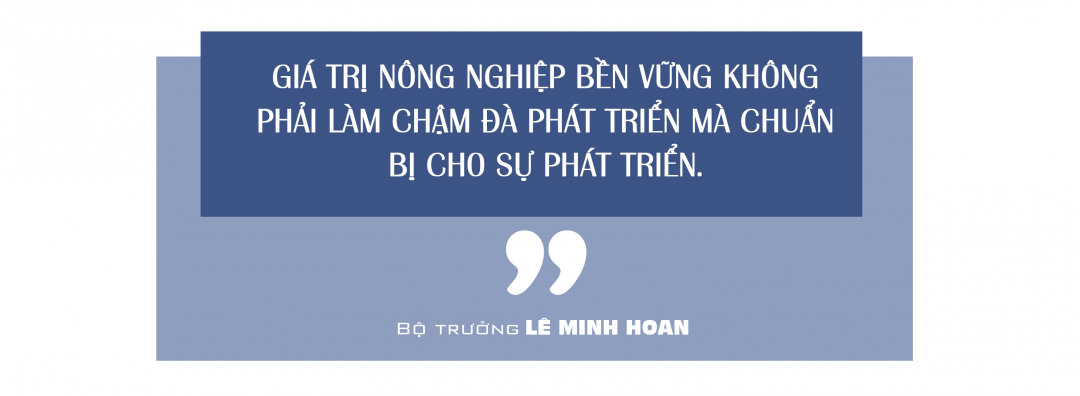
I often hear local governments express concern that rural tourist development is too modest and is awaiting large investors to construct a complex. Each, I believe, has inherent worth. While agricultural and rural tourism may not generate significant direct income, they contribute significantly to the local image.
At the moment, the cost of investing in rational resource usage should take into consideration the depletion of natural resources, land, and water. And we cannot fight this tendency; rather, we must adapt to it via a shift in our thinking and the use of digital technology. As I previously said, we have hidden expenses, but everything is quantifiable, even if it is a little challenging.
The purpose of sustainable agriculture is not to halt growth, but to prepare for it. We will establish a worldwide image of agriculture, with a particular emphasis on the image of Vietnamese agriculture that is environmentally friendly.
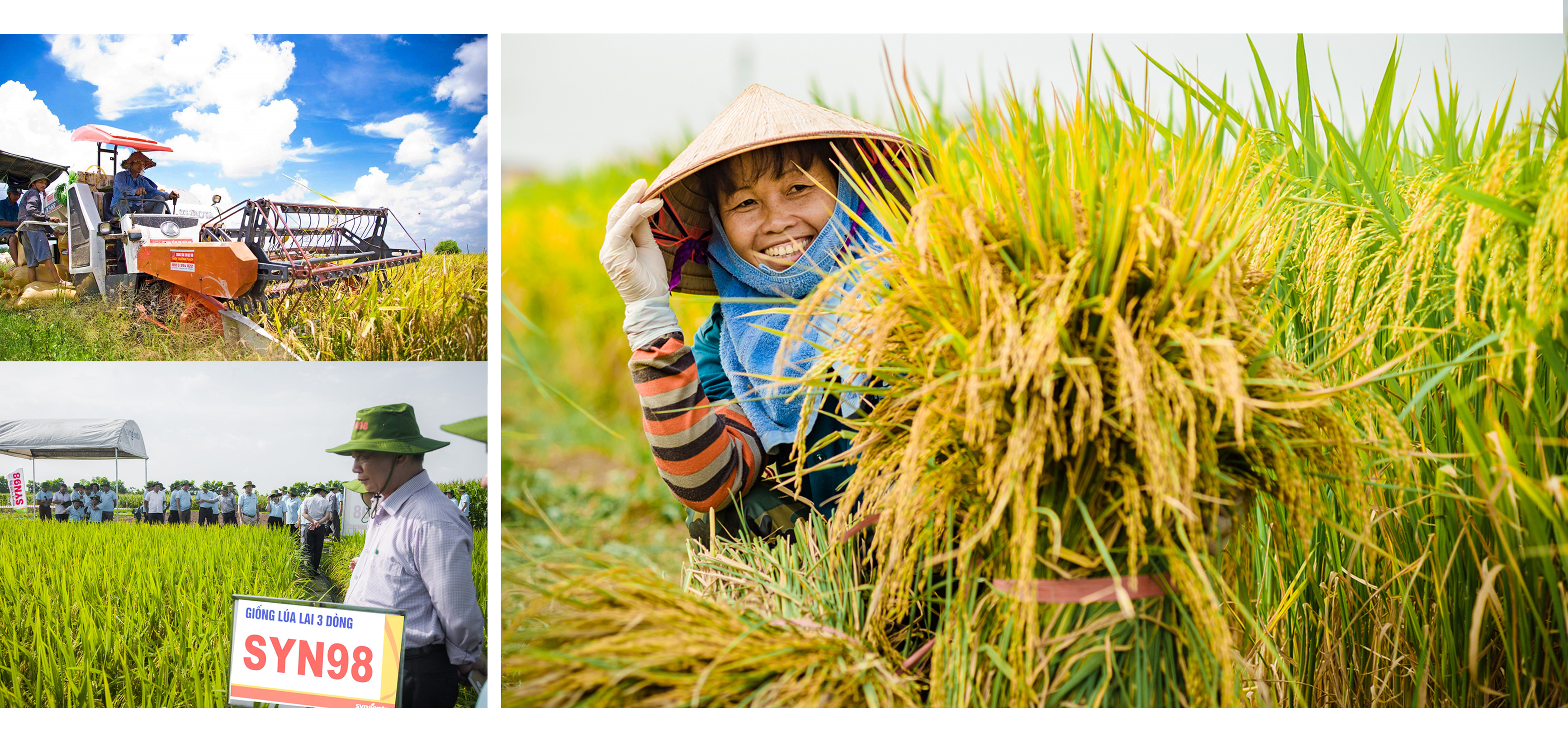
Translated by Linh Linh

(VAN) According to the Binh Thuan Department of Industry and Trade, in the first five months of 2025, Binh Thuan's dragon fruit export turnover increased by 20.65% compared to the same period last year.

(VAN) EU countries on Thursday gave final approval to new tariffs on fertilizer imports from Russia, a move aimed at cutting off revenue that could support Moscow’s war in Ukraine, despite concerns from European farmers.

(VAN) The working delegation from the Ministry of Agriculture and Environment conducted an important trip to the Netherlands to strengthen strategic partnerships and sustainable development in the agricultural sector.

(VAN) The letter ‘A Plea from the Ocean’ not only evokes emotion but also awakens the human conscience to the responsibility of protecting life on Earth.

(VAN) The Department of Agriculture in South Africa has announced the country’s first mass vaccination of poultry to prevent local birds from contracting avian influenza.

(VAN) Establishment of the Mekong Delta Regional Agricultural Linkage Center, aiming for a closed value chain, deep processing, trading platforms, and international market connectivity.

(VAN) Gia Lai province has recently recorded 460 rare species of animals and plants, contributing to forest conservation and biodiversity planning in the region.